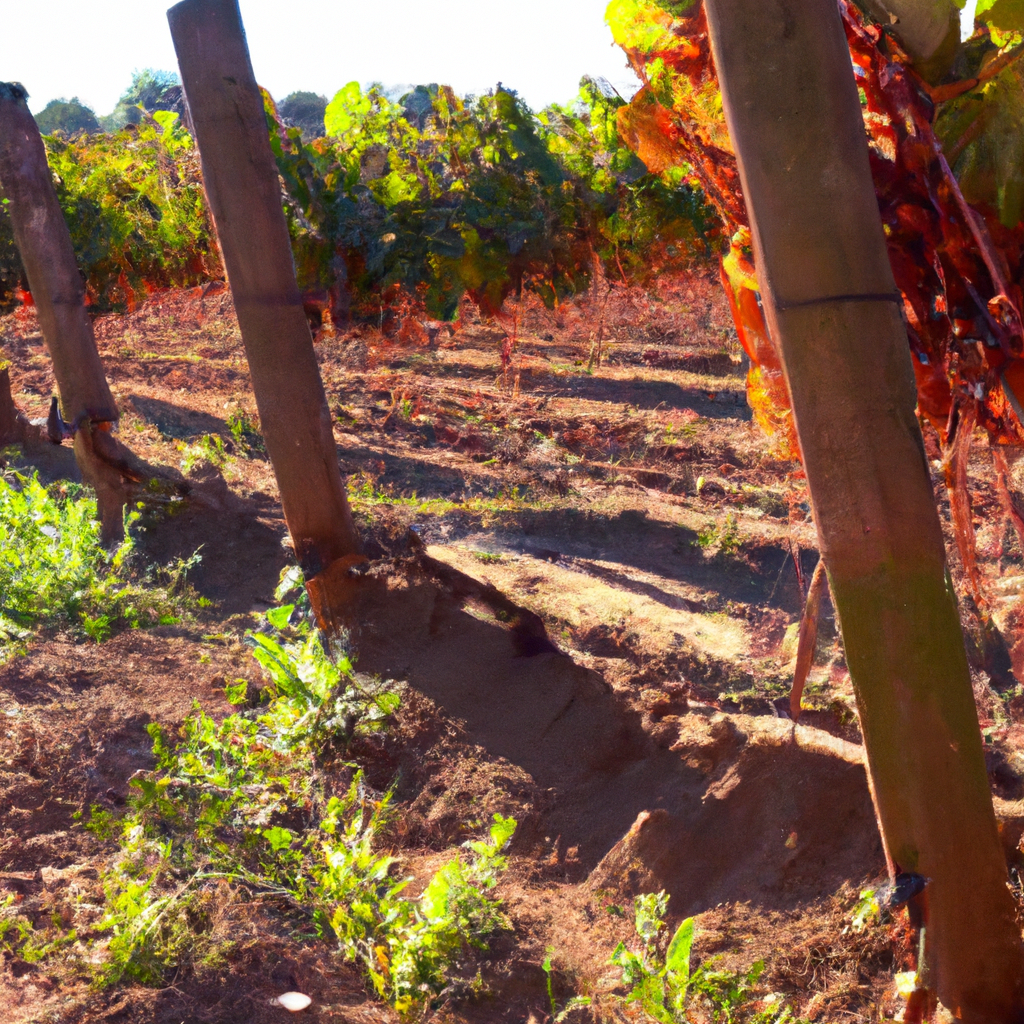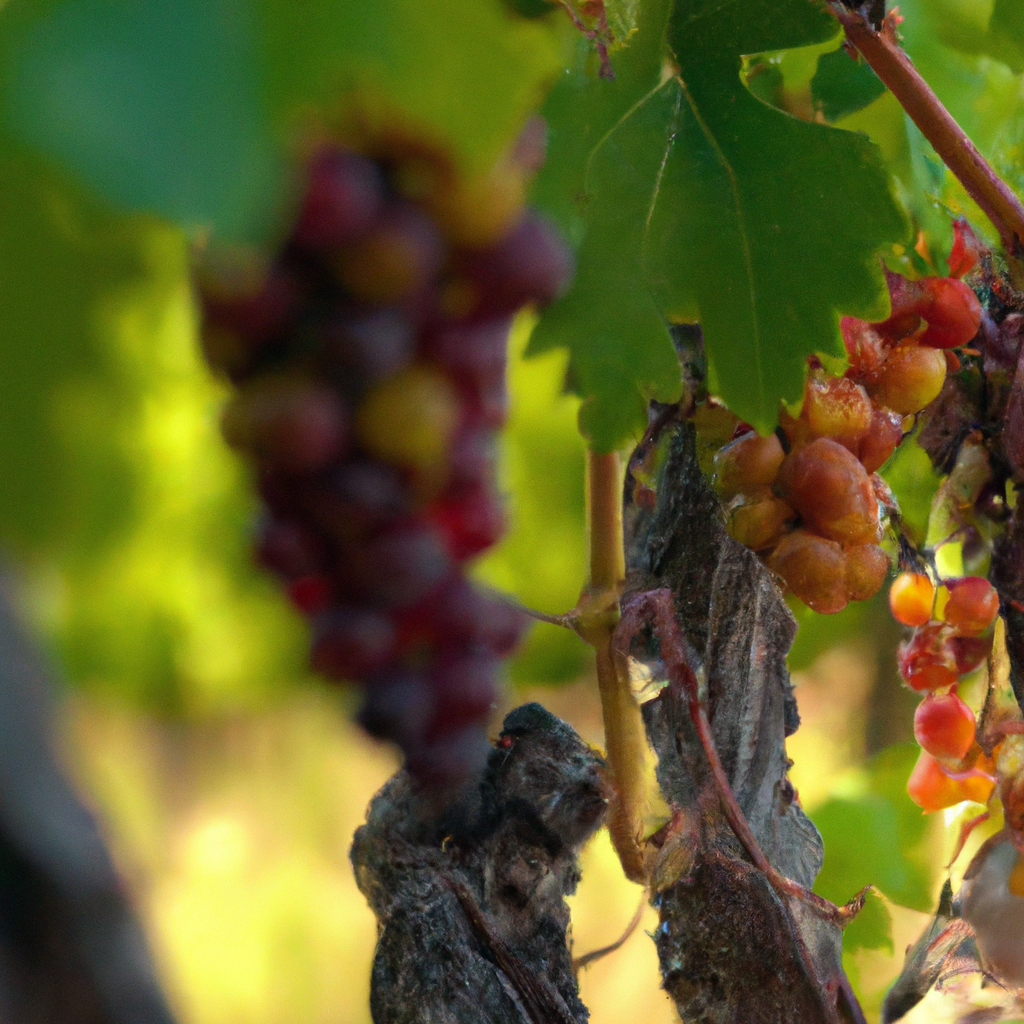
-
Article Summary
- Unlocking the Secrets of Grapevine and Soil: The Impact of Terroir on Winemaking
- Key Takeaways
- Introduction: The Intricate Dance of Grapevine and Soil
- The Influence of Terroir
- Soil Composition and Wine Quality
- Climate and Topography: The Silent Shapers of Wine
- FAQ Section
- What is terroir?
- How does soil affect wine?
- How does climate influence wine?
- What is the role of topography in winemaking?
- Why is understanding terroir important?
- Conclusion: The Symphony of Terroir
- Key Takeaways Revisited
Unlocking the Secrets of Grapevine and Soil: The Impact of Terroir on Winemaking

[youtubomatic_search]
Key Takeaways
- The concept of terroir is integral to the quality and character of wine.
- Terroir encompasses the soil, climate, and topography of a vineyard.
- Soil composition significantly affects the taste and aroma of wine.
- Climate and topography also play crucial roles in grape development and, consequently, wine quality.
- Understanding terroir can enhance appreciation and knowledge of wine.
Introduction: The Intricate Dance of Grapevine and Soil
The world of winemaking is a complex and fascinating one, with many factors contributing to the final product that graces our tables. One of the most significant and intriguing aspects is the concept of ‘terroir’ – a French term that encapsulates the unique combination of soil, climate, and topography of a vineyard. This article delves into the secrets of grapevine and soil, exploring the profound impact of terroir on winemaking.
The Influence of Terroir
Terroir is a term that has no direct English translation, but it essentially refers to the environmental conditions, particularly soil and climate, in which grapes are grown. It is a concept deeply rooted in French winemaking and is considered by many to be the soul of the wine. The soil type, mineral content, drainage, and microbiome, along with the climate and topography, all contribute to the unique characteristics of each wine.
Soil Composition and Wine Quality
Soil plays a pivotal role in the quality and character of wine. Different soil types have varying abilities to retain water and nutrients, which directly affects the health and vigor of the grapevines. For instance, limestone soils, like those in Burgundy, France, are known for producing high-quality Pinot Noir and Chardonnay wines with a distinct minerality. On the other hand, the slate soils of Germany’s Mosel region impart a unique flinty character to its Riesling wines.
Climate and Topography: The Silent Shapers of Wine
Climate and topography also significantly influence the terroir. The amount of sunlight, rainfall, temperature, and wind can drastically affect the ripening process of grapes. For example, the cool climate and steep slopes of the Mosel region in Germany provide optimal conditions for Riesling grapes, resulting in wines with high acidity and pronounced fruit flavors. Conversely, the warm climate and flat terrain of Napa Valley, California, are ideal for cultivating Cabernet Sauvignon grapes, yielding full-bodied wines with high tannin content.
FAQ Section
What is terroir?
Terroir is a French term that refers to the unique combination of soil, climate, and topography of a vineyard. It significantly influences the taste and aroma of wine.
How does soil affect wine?
Soil affects the water and nutrient supply to grapevines, which directly impacts their health and vigor. Different soil types can also impart distinct flavors to the wine.
How does climate influence wine?
Climate affects the ripening process of grapes. Factors such as sunlight, rainfall, temperature, and wind can alter the sugar, acid, and tannin levels in grapes, thereby influencing the taste of wine.
What is the role of topography in winemaking?
Topography, or the physical layout of the vineyard, can affect the exposure of grapevines to sunlight and wind, influencing the ripening process and, consequently, the quality of wine.
Why is understanding terroir important?
Understanding terroir can enhance one’s appreciation and knowledge of wine. It can also guide winemakers in selecting the best grape varieties for a particular vineyard.
Conclusion: The Symphony of Terroir
In conclusion, the concept of terroir is integral to the quality and character of wine. It encompasses the soil, climate, and topography of a vineyard, each playing a crucial role in grape development and, consequently, wine quality. By understanding terroir, we can not only enhance our appreciation and knowledge of wine but also unlock the secrets of the intricate dance between grapevine and soil.
Key Takeaways Revisited
- Terroir, encompassing the soil, climate, and topography of a vineyard, significantly impacts the quality and character of wine.
- Soil composition affects the health and vigor of grapevines, thereby influencing the taste and aroma of wine.
- Climate and topography play crucial roles in the ripening process of grapes, altering the sugar, acid, and tannin levels in them.
- Understanding terroir can guide winemakers in selecting the best grape varieties for a particular vineyard and enhance one’s appreciation and knowledge of wine.
[youtubomatic_search]






